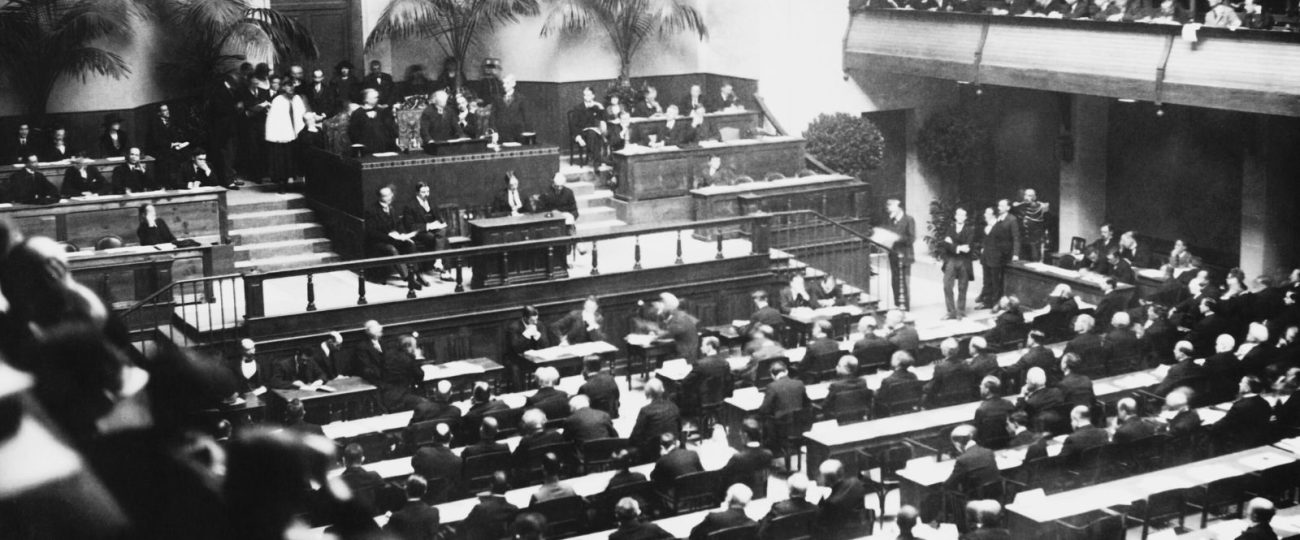What Happened On September 18th?
On September 18, 1934, the Soviet Union officially joined the League of Nations, a dramatic shift in global politics that few had anticipated just years earlier. Led by Foreign Minister Maxim Litvinov, Soviet diplomats took their seats in Geneva, which signaled a major realignment in the country’s foreign policy. The USSR, long an international outcast, now sat among the world’s major powers.
Litvinov addressed the League assembly with a direct speech, laying out the Soviet Union’s commitment to collective security and the fight against fascism. He pointed to the growing danger from Nazi Germany, calling on the assembled nations to come together in defense of European peace. Though some delegates still viewed the Soviet Union with suspicion, the League welcomed the USSR’s membership by the end of the day. The world took note of this new alliance, which brought fresh possibilities for cooperation against the rising threat in Europe.
Soviet participation immediately changed the League’s internal dynamics. As the largest nation by both population and landmass, the USSR introduced a new balance of power to the organization. Its presence added strength to the League’s ability to take action, particularly as Germany had withdrawn from the organization the previous year. The Soviet Union’s entry came at a time when the League needed renewed influence, especially as European tensions increased.
The decision to admit the Soviet Union followed years of isolation and ideological opposition. The USSR, viewed with hostility by Western nations due to its communist ideology and revolutionary past, had long rejected the League as an institution designed to protect imperialist interests. However, the rise of fascism in the early 1930s, particularly Adolf Hitler’s ascent to power in Germany, forced both the Soviet Union and its rivals to reconsider their positions. The threat posed by Germany’s growing military and territorial ambitions led to a shift in thinking.
Maxim Litvinov, a highly experienced diplomat, became instrumental in navigating the complexities of Soviet foreign relations. Fluent in English and well-connected in European political circles, Litvinov had spent years building relationships with key Western diplomats. His pragmatic approach allowed him to negotiate effectively, positioning the Soviet Union as a potential partner in the fight against fascism. Litvinov’s skillful diplomacy smoothed the path for the USSR’s entry into the League.
Litvinov’s background gave him a unique advantage in international negotiations. Years earlier, during his exile in Europe for revolutionary activities, he had built a network of contacts that proved valuable as the Soviet Union sought to improve its diplomatic standing. His knowledge of Western political systems enabled him to bridge ideological gaps and present the Soviet Union as a vital ally in addressing the threat posed by Nazi Germany.
Inside the Soviet Union, joining the League sparked internal debate. Some officials questioned whether cooperating with capitalist countries would compromise the revolution’s ideals. The Soviet Union had long defined itself as a counter to the capitalist world, and aligning with the League seemed to challenge that identity. However, Stalin, focused on the immediate need for security, saw the League as a practical tool for protecting Soviet interests. He prioritized defense over ideology, recognizing that the growing danger from Germany required cooperation with Western powers.
Soviet membership also had immediate effects on European military alliances. The Soviet Union strengthened its relationships with France and Czechoslovakia through League channels, as both nations shared concerns about Germany’s rearmament and territorial ambitions. These alliances grew in importance as Europe approached war, and the Soviet Union’s diplomatic engagement through the League was crucial in preparing for the challenges ahead.
While Soviet officials debated the merits of cooperation with the League, Stalin’s pragmatic approach prevailed. He understood that alliances with capitalist nations, though ideologically uncomfortable, were necessary to safeguard the Soviet Union. The League gave the USSR a voice in key discussions on disarmament and security, allowing it to influence policies that directly aligned with its interests. Though many Western powers remained wary of Soviet intentions, Litvinov’s careful diplomacy helped ease tensions and build strategic partnerships.
Domestically, joining the League created a degree of tension within the Soviet leadership. Many worried that participating in an organization largely controlled by capitalist nations would dilute the revolutionary principles of the Soviet Union. Stalin, however, focused on the broader strategic picture. He saw engagement with the League as a necessary step to strengthen the Soviet Union’s position on the global stage, particularly as the threat from Germany became more urgent. His decision to prioritize security over ideological purity shaped Soviet foreign policy in the years leading up to World War II.
Another consequence of Soviet membership in the League involved its role in shaping sanctions policies. The Soviet Union, with its economic power and extensive influence on global trade, pushed for stronger sanctions against fascist regimes. For example, when Italy invaded Ethiopia in 1935, the Soviet Union supported the League’s efforts to impose sanctions, demonstrating Moscow’s willingness to use its position to challenge authoritarian regimes beyond Europe.
As Europe moved closer to war, the Soviet Union’s involvement in the League gained even greater importance. The USSR used its membership to build stronger alliances and position itself for future conflicts with Germany. Although Stalin remained cautious in his dealings with Western nations, the diplomatic relationships formed through the League provided valuable channels for negotiation as tensions escalated.





